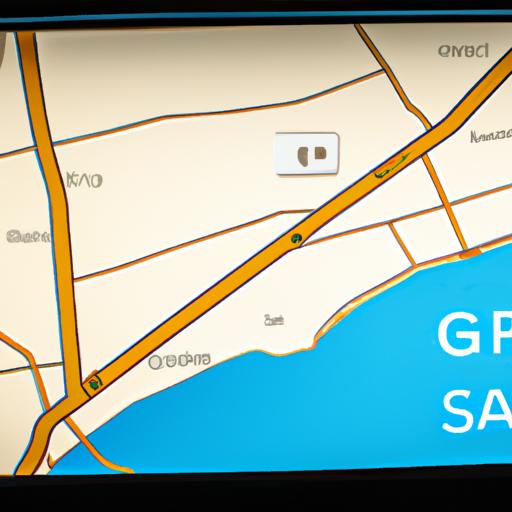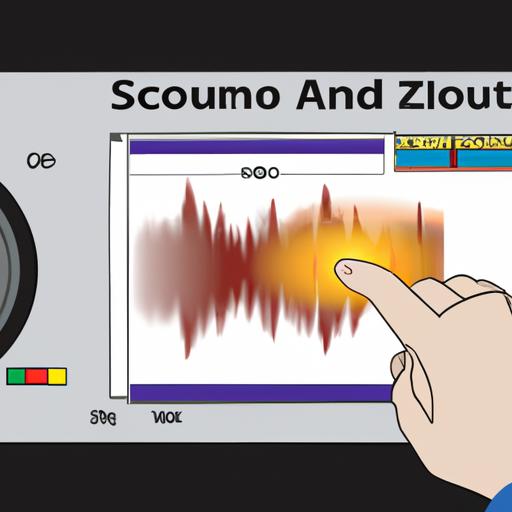What is GPS: A Comprehensive Guide to Global Positioning System
Introduction
Have you ever wondered how your smartphone accurately guides you to your destination, or how logistics companies efficiently track their deliveries worldwide? The answer lies in GPS technology. In this article, we will delve into the intriguing world of GPS and unravel its wonders. So, let’s embark on a journey to understand what GPS is, its significance in our modern lives, and what you can expect from this comprehensive guide.
Exploring GPS Technology
GPS, or Global Positioning System, is a satellite-based navigation system that enables precise location determination anywhere on Earth. Developed by the United States Department of Defense, this revolutionary technology has transformed the way we navigate and interact with the world around us. But how does it work?
At its core, GPS relies on a network of satellites orbiting the Earth, constantly transmitting signals to GPS receivers on the ground. By receiving signals from multiple satellites and calculating the time it takes for each signal to reach the receiver, GPS devices can accurately determine their position on the planet’s surface. This remarkable feat of technology has opened up a myriad of possibilities in various domains.
The Significance of GPS in Today’s World
In our fast-paced, interconnected world, GPS has become an indispensable tool that impacts numerous aspects of our lives. Whether it’s navigating unfamiliar roads, tracking shipments, or even finding your lost pet, GPS simplifies everyday tasks and offers convenience like never before. Moreover, GPS plays a vital role in critical sectors such as aviation, emergency services, and military operations, where precision and accuracy are paramount.
Unveiling the Purpose of this Comprehensive Guide
Now that we understand the basics of GPS technology and its significance, let’s take a closer look at its applications, the types of GPS devices available, and the pros and cons of utilizing this technology. By the end of this guide, you will have a well-rounded understanding of GPS and its implications in today’s world.
Stay tuned for the upcoming sections where we dive into the fascinating world of GPS applications and explore the various devices that make it all possible. Let’s navigate through the intricacies of GPS technology together and uncover its true potential!
Understanding GPS
Definition and Explanation of GPS
GPS, short for Global Positioning System, is a satellite-based navigation technology that provides accurate positioning and timing information anywhere on Earth. It allows users to determine their precise location, velocity, and time synchronization with extraordinary precision. By utilizing a network of satellites, GPS has revolutionized the way we navigate and interact with the world around us.
How GPS Works and Its Basic Components
To comprehend how GPS functions, we must explore its fundamental components. Firstly, there are at least 24 satellites orbiting the Earth, each equipped with atomic clocks and specialized GPS receivers. These satellites continuously transmit signals containing information about their location and time.
When you use a GPS device, it receives signals from at least four satellites in its vicinity. By calculating the time it takes for each satellite signal to reach the receiver, the device can determine the distance between itself and each satellite. This process, known as trilateration, allows the GPS receiver to pinpoint its position accurately.
GPS devices also rely on a receiver unit, which processes the signals from the satellites and calculates the user’s position based on the data received. The receiver then displays this information on a screen, providing real-time location updates.
Brief History of GPS Development
The development of GPS technology dates back to the 1960s when the United States Department of Defense started exploring the concept of a satellite-based navigation system. The initial purpose was to enhance military operations and provide accurate positioning for various applications.
In 1978, the first GPS satellite was launched into space, and by the 1990s, GPS technology became available for civilian use. Over time, advancements in technology and the addition of more satellites have significantly improved the accuracy and availability of GPS.
Today, GPS has become an integral part of our lives, enabling us to navigate, track, and locate with unprecedented precision. Understanding the basics of GPS technology sets the stage for exploring its vast applications and the myriad of devices that utilize this remarkable system. So, let’s move forward and delve into the exciting world of GPS applications!
GPS Applications
GPS technology offers a wide range of applications that have revolutionized numerous industries. Let’s explore some of the key areas where GPS has made a significant impact:
Navigation and Location-Based Services
Gone are the days of getting lost or relying solely on paper maps. GPS has transformed navigation, making it easier and more efficient than ever before. With navigation systems integrated into our smartphones and vehicles, we can effortlessly find the best routes, locate points of interest, and accurately track our progress in real-time. Additionally, location-based services such as restaurant recommendations, nearby attractions, and weather updates rely on GPS to provide personalized experiences tailored to our specific whereabouts.
GPS in Transportation and Logistics
The transportation and logistics industry heavily relies on GPS for fleet management and efficient route planning. GPS tracking systems enable companies to monitor their vehicles, ensuring timely deliveries, optimizing fuel consumption, and enhancing overall operational efficiency. Real-time tracking also improves customer satisfaction by providing accurate delivery estimates and enabling transparent communication between the company, drivers, and customers.
GPS in Outdoor Activities and Sports
Whether you enjoy hiking, biking, or participating in outdoor sports, GPS has become an invaluable companion for outdoor enthusiasts. GPS-enabled devices, such as smartwatches and handheld GPS units, provide precise location data, altitude information, and detailed trail maps. These devices enhance safety, allowing individuals to navigate unfamiliar terrains, track their performance, and even share their adventures with friends and fellow enthusiasts.
GPS in Agriculture and Farming
In the agricultural sector, GPS technology has revolutionized farming practices. Farmers can accurately map their fields, precisely apply fertilizers and pesticides, and optimize irrigation systems based on real-time data gathered through GPS. This precision agriculture approach helps minimize resource wastage, increase crop yields, and promote sustainable farming practices.
Stay tuned for the upcoming sections where we delve deeper into GPS devices, exploring the various types available and their features and functionalities. GPS has truly transformed the way we navigate, manage logistics, engage in outdoor activities, and revolutionized farming practices. Let’s continue our journey into the world of GPS and uncover its incredible potential!
GPS Devices
GPS devices have become increasingly popular and diverse, catering to various needs and preferences. Let’s explore the different types of GPS devices available, discover some popular options in the market, and delve into their features and functionalities.
Types of GPS Devices Available
-
Handheld GPS Devices: These compact and portable devices are ideal for outdoor enthusiasts, hikers, and adventurers. They offer robust navigation features, including topographic maps, waypoints, and geocaching capabilities.
-
Smartphones and Tablets: With built-in GPS receivers, smartphones and tablets have become ubiquitous navigation tools. They provide turn-by-turn directions, real-time traffic updates, and location-based services through dedicated navigation apps.
-
In-Car GPS Systems: Designed specifically for automotive use, in-car GPS systems offer a seamless navigation experience with features like voice-guided directions, lane assistance, and real-time traffic information. They are often integrated into the car’s infotainment system.
-
Fitness GPS Watches: These GPS-enabled watches are tailored for fitness enthusiasts, runners, and cyclists. They provide accurate tracking of speed, distance, and routes, along with heart rate monitoring and training features.
Popular GPS Devices on the Market
-
Garmin GPSMAP 64sx: Known for its durability and reliability, this handheld GPS device offers advanced navigation features, such as multi-GNSS support, BirdsEye Satellite Imagery, and wireless connectivity.
-
Apple iPhone: Combining GPS capabilities with a multitude of features, iPhones have become a go-to choice for navigation. With apps like Apple Maps and Google Maps, they provide seamless navigation experiences.
-
TomTom GO Navigation: TomTom’s in-car GPS systems offer comprehensive navigation solutions with features like real-time traffic updates, speed camera alerts, and voice control for a hassle-free driving experience.
-
Fitbit Versa 3: This fitness GPS watch from Fitbit not only tracks your workouts and daily activity but also provides accurate GPS tracking for outdoor exercises. It offers a sleek design, onboard music storage, and smartwatch features.
Features and Functionalities of GPS Devices
GPS devices offer a range of features and functionalities to enhance your navigation experience. Some common features include:
-
Turn-by-Turn Directions: GPS devices provide step-by-step guidance, ensuring you never miss a turn or exit.
-
Live Traffic Updates: Real-time traffic information helps you avoid congested routes and reach your destination faster.
-
Points of Interest (POI): GPS devices often include a vast database of POIs, such as restaurants, gas stations, and landmarks, making it easier to find nearby amenities.
-
Voice Guidance: Voice prompts guide you along your route, keeping your eyes on the road.
-
Offline Maps: Many GPS devices allow you to download maps for offline use, ensuring navigation even in areas with limited internet connectivity.
With these diverse GPS devices and their impressive features, you can find the perfect navigation companion to suit your specific needs and preferences. Stay tuned for the upcoming sections where we explore the pros and cons of GPS technology and unveil its various applications.
Pros and Cons of GPS
GPS technology undoubtedly offers numerous advantages, but like any technology, it also has its limitations and concerns. Let’s explore the pros and cons of using GPS technology and gain a comprehensive understanding of its implications.
Advantages of using GPS technology
-
Accurate Navigation: GPS provides precise location information, allowing you to navigate with confidence. Whether you’re exploring new cities or hiking in remote areas, GPS ensures you never lose your way.
-
Time and Fuel Efficiency: GPS-enabled navigation systems help optimize routes, saving time and reducing fuel consumption. This benefit extends to logistics companies, improving delivery efficiency and reducing costs.
-
Emergency Services: GPS enables emergency services to pinpoint your location swiftly, ensuring timely assistance during emergencies. This capability has proven to be life-saving in critical situations.
-
Tracking and Asset Management: GPS tracking systems are invaluable for businesses to monitor assets, vehicles, and personnel. This feature enhances security, improves fleet management, and enables efficient resource allocation.
Limitations and challenges of GPS
-
Signal Interference: GPS signals can be weakened or obstructed by tall buildings, dense foliage, or adverse weather conditions. In such scenarios, accuracy may be compromised, leading to potential navigational errors.
-
Indoor Navigation: GPS primarily relies on signals from satellites, making it less effective indoors. This limitation poses challenges for indoor navigation applications and tracking devices.
-
Power Consumption: GPS receivers consume significant power, which can drain device batteries quickly. Users must balance the benefits of GPS with preserving battery life, especially during long journeys or outdoor activities.
Privacy concerns related to GPS usage
-
Location Tracking: GPS technology allows tracking of an individual’s whereabouts, raising concerns about privacy and surveillance. It is essential to use GPS-enabled devices and services responsibly and be aware of the data being collected and shared.
-
Data Security: GPS data may contain sensitive information, and its security must be safeguarded to prevent unauthorized access or misuse. Service providers must implement robust security measures to protect user data.
As with any technology, understanding the pros and cons of GPS empowers individuals and organizations to make informed decisions. By weighing the benefits against the limitations and addressing privacy concerns, we can fully embrace and utilize GPS technology while ensuring its responsible use.
Conclusion
In conclusion, GPS technology has revolutionized the way we navigate and interact with the world around us. From providing precise location information to enabling efficient logistics and enhancing outdoor activities, GPS has become an indispensable part of our lives.
Throughout this comprehensive guide, we have explored the fundamentals of GPS technology, its applications in various industries, and the pros and cons associated with its usage. We have seen how GPS simplifies our daily tasks, enhances safety in critical sectors, and offers unprecedented convenience and accuracy.
As we continue to advance technologically, the potential of GPS technology only continues to grow. With ongoing developments and innovations, we can expect even more sophisticated GPS devices and applications in the future.
So, whether you’re planning a road trip, tracking your fitness activities, or relying on GPS for professional purposes, understanding the ins and outs of GPS technology will undoubtedly enhance your experience and ensure you make the most of this remarkable innovation.
Thank you for joining me on this journey to uncover the wonders of GPS. I hope this guide has provided valuable insights and empowered you with the knowledge to fully embrace and utilize GPS technology in your everyday life. Remember, the world is at your fingertips with GPS!






